Re:Build has expertise in designing and building battery packs and battery management systems (BMS) subassemblies for a variety of applications, including motorcycles, forklifts, stationary storage, and novel eVTOL aircraft. Re:Build’s Brain to Box™ methodology supports customers from design concept and product development through product verification, manufacturing process design, and production support. Our iterative process in engineering and design for manufacturing ensures that customers’ battery packs will be cost-effective and will perform as needed, while meeting requirements for safety, reliability, and ease of use. These battery packs are designed by our team of highly experienced engineers who are tasked each day with solving the most challenging design and analysis problems. Our core competencies include computer-aided design, structural design, mechanical design, and computational thermal and fluid dynamic analysis. Our expertise in electrical systems and power electronics includes high- and low-voltage electrical systems, embedded systems, BMS, and product design. The Re:Build battery team provides oversight and analysis relating to battery pack standards, design for manufacturing, production cost modeling, and other key criteria needed to meet customers’ goals. Our efforts are managed by Re:Build’s program management office to ensure clear, efficient communication with customers. After the battery pack design is brought to life, Re:Build facilitates smooth production delivery with our process and factory design-and-build expertise, skillful supply chain management, assembly, warehousing, and distribution capabilities.
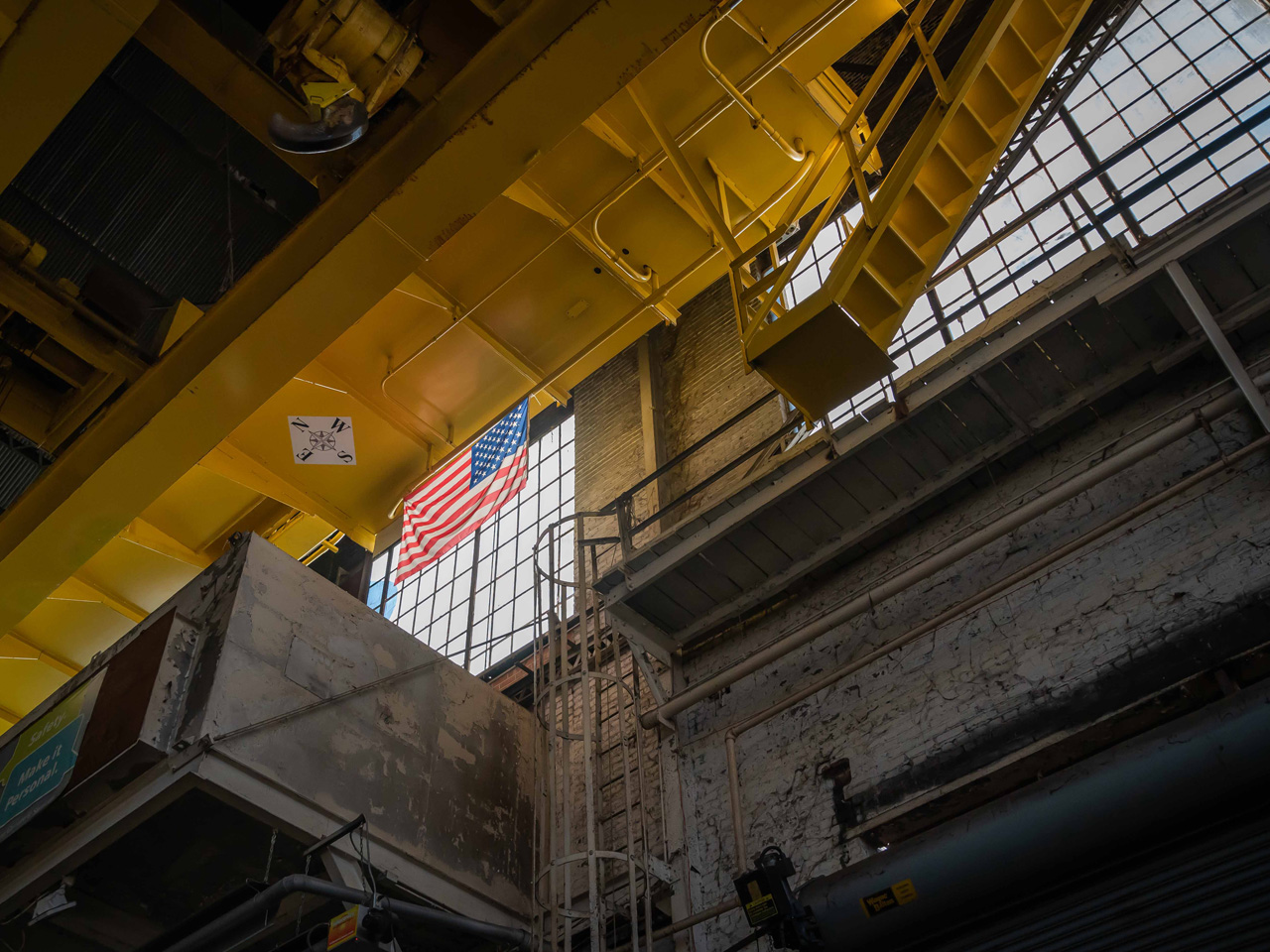
Re:Build Manufacturing New Kensington location
Re:Build was founded in 2020 with the goal of reinvigorating the U.S. industrial manufacturing base through a unique model that combines traditional engineering and manufacturing methodologies with purpose-built automation systems, proprietary software, digital tools, and aggressive deployment of Lean and Continuous Improvement in a transparent and collaborative environment. We have a strong balance sheet with zero debt and an investor base that is engaged and committed to the long-term capital demands of larger scale manufacturing businesses. We collaborate with our customers to optimize designs, processes, and operational efficiency to drive costs down, while improving quality, throughput, and on-time performance. Any cost savings from these processes are shared with our customers. Across our 13 sites—all of them located in the U.S.—we have 700,000square feet of design, engineering, and manufacturing space and 900 employees, of whom 400 are engineers.
Today, Re:Build unveils our new battery pack prototype assembly lab, known as, The Test Kitchen. This 2,000 sq ft facility, located at Re:Build DAPR’s operations in Nashua, New Hampshire, houses the equipment needed to manufacture high-mix lithium-ion (Li-ion) battery packs. Our prototype and process-development space supports the assembly and testing of high-quality Li-ion battery packs up to several kWh in size. Currently we are processing 18650- and 21700-type cylindrical cells. Process pouch and prismatic cell processing is in development. This operation can also simultaneously assemble 15 MWh/yr of high-mix battery packs and those with different cell and size requirements. Our Test Kitchen operations enable us to turn around custom Li-ion battery pack prototypes in weeks, rather than months. The prototype work we conduct gives Re:Build valuable know-how on the design and layout of high-automation manufacturing lines, which are built to suit customers’ pack requirements. Current customers are e-mobility OEMs and defense contractors. Applications for advanced air mobility and rough terrain vehicles, and battery packs for the marine industry are in development.

Test kitchen work area
We begin by unpacking cylindrical cells and entering their lot information into our traceability database. This generates the digital fingerprint we will build for our packs. Next, the cells go through our intake process, which includes Re:Build’s testing protocol and surface preparation for adhesion. Cells are then placed in and adhered to the bottom shell of the module or pack assembly. The battery assembly is positioned in the wire bonder and the terminals are cleaned. Next, wires are bonded to the terminals and bus bar. Before completing the bonding step, every connection is pull-tested. After all bonds have been checked, we add the remaining modules, the cooling plate, BMS, and the top cover assembly. After this step, the completed pack assembly undergoes end-of-line testing.
Re:Build plans to expand the Test Kitchen line and develop fully automated battery pack operations, including conveyance, automated guided vehicles, and Fanuc robots that will advance battery packs through the stations described above. Our machine building and process knowledge allow us to build packs in multiple sizes fora variety of customers across several industries. Re:Build’s expertise in composites and machining allows us to offer customers a unique value proposition—to consistently deliver lightweight, high-strength material solutions, including Re:Build’s proprietary BMS: a safe, reliable, agile battery management package. Re:Build’s BMS is considered the brain of the battery and is an integral part of the overall pack and functional safety.
We are excited to share this milestone in Re:Build’s effort to revitalize American manufacturing in the U.S. If you have any questions or comments or want to learn more, please visit our Battery Manufacturing page or contact us here.
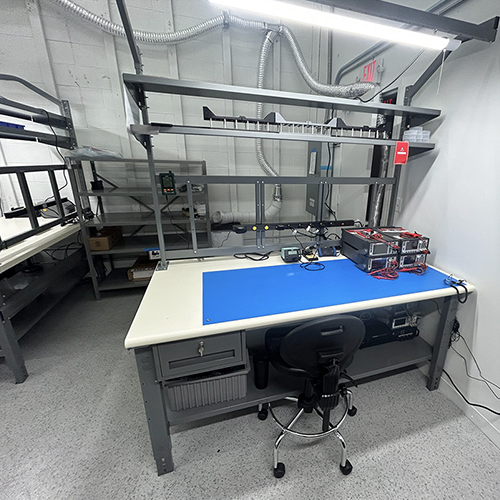
Test kitchen work area
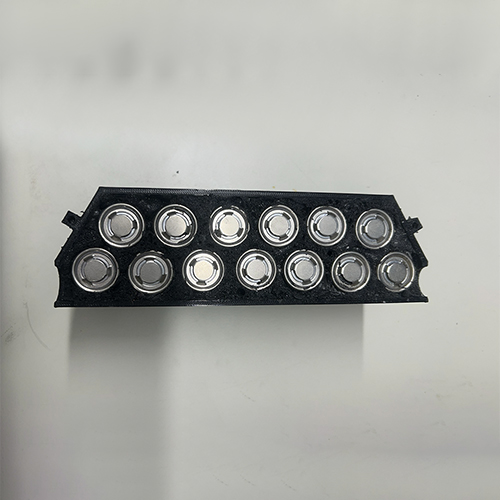
Pack mix design
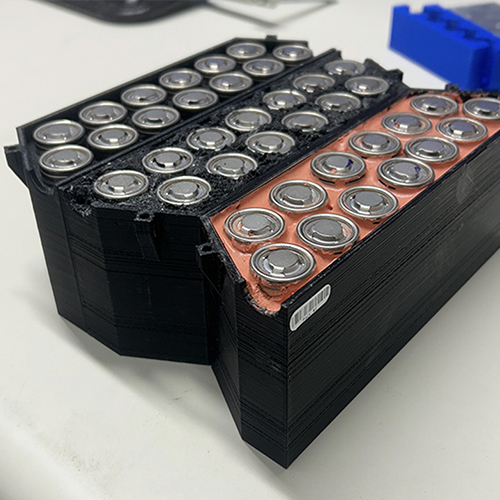
Pack mix design
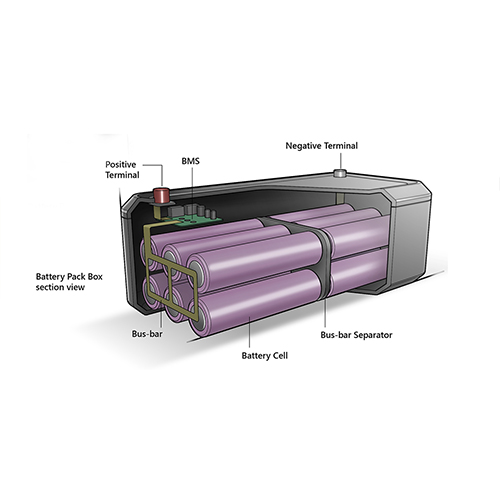
BMS and enclosure graphic